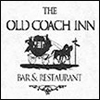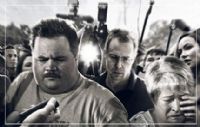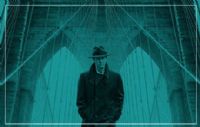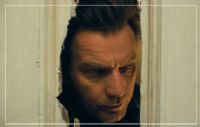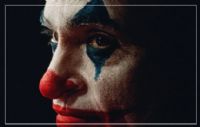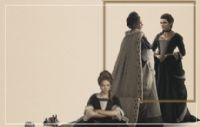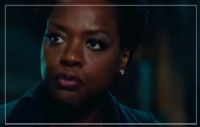Review: Literary Origins
Date: 24/10/2016
Movie Review
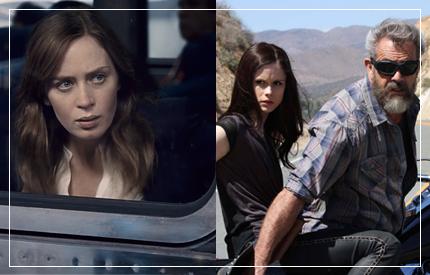
Two new films, The Girl on The Train and Blood Father, are pitched at different audiences, but share literary origins and protagonists with drinking problems, and both turn out to be mixed bags almost, but not quite, redeemed by magnetic lead performances. If you thought the Girl on the Train book was a poor man's Gone Girl, wait till you see the movie.
The comparisons drawn between Paula Hawkins and Gillian Flynn's smash hit novels were obvious while exaggerated: aside from the titles, both are murder mysteries featuring unpleasant men and damaged, unreliable female narrators, but there's a world of difference between the icy, calculating rage of Rosamund Pike's Amy and the woozy, boozy troubles of Train's Rachel (Emily Blunt).
Hawkins' heroine is pathetic and lonely, an alcoholic who can't get over her ex-husband Tom (Justin Theroux), whose Facebook pictures of his lovely new family send her reaching for the carryout. While her life disintegrates, Rachel develops an obsession with a young couple (Haley Bennett and Luke Evans) whose house she passes every day on her commute into Manhattan (the transatlantic shift loses the particularly British miserablism that commuting inspires).
One morning she sees something she shouldn't and finds herself pulled into the investigation when the young wife, the airy, provocative Megan, goes missing. The novel was more effective as a portrait of alcoholism than a mystery thriller: its most memorable images are of a hungover Rachel hunched in her carriage, sweaty and sticky with shame, overcome with The Fear.
And Blunt's superb performance, with her pale blotchy skin and trembling anxiety, provides some solidity to a story that moves with the grace of a wino stumbling his way to the restroom, a swirling blur of half-memories and narrative leaps.
Sharp photography of beautiful people and their upmarket locales set to a grumbling electronic score can't help but echo Fincher and Trent Reznor's work on Gone Girl, but director Tate Taylor can't match that film's malice, dark humour or tight tonal control. Jumping between timelines and the perspectives of Rachel, Megan and Tom's new wife Anna (Rebecca Ferguson), who jealously guards her domestic bliss against his unstable ex, the film never settles down to flesh out the women's angst and actually tell the story. Passable as trashy erotic melodrama, but hardly first-class.
There's barely a drop of the hard stuff in Blood Father, in which a too-old-for-this-shit Mel Gibson plays John Link, a sobered up ex-biker badass whose quiet trailerpark existence is upended by the return of his estranged 17 year-old daughter, on the run from gangbanger types.
Peter Craig adapts his own novel and Jean-François Richet directs, continuing the peculiar pairing of French film-makers and mid-market daddy's-girl action blasters, following Luc Besson, Perre Morel and Olivier Megaton's success with the Taken series.
Blood Father's best asset is mad Mel: bearded and bulked up, he looks like someone the word 'grizzled' was invented for. There's an irresistible meta-quality to Gibson's has-been, suffering through regrets and demons but still eager for some kind of redemption. And it's a treat seeing the actor Riggs it up, dodging gunfire while barking tough love to the messed-up Lydia (Erin Moriarty).
As a line-chewing hothead, Gibson is clearly having fun and without him Blood Father would be entirely forgettable B-movie trash. The father-daughter bonding sucks up time best used for more action sequences, the villian's motivations aren't clear and, in the grand tradition of child-buddy sidekicks, Lydia's patter is obnoxiously irritating. Whatever Mel's on these days, the film could've used more of it.
Conor Smyth
The comparisons drawn between Paula Hawkins and Gillian Flynn's smash hit novels were obvious while exaggerated: aside from the titles, both are murder mysteries featuring unpleasant men and damaged, unreliable female narrators, but there's a world of difference between the icy, calculating rage of Rosamund Pike's Amy and the woozy, boozy troubles of Train's Rachel (Emily Blunt).
Hawkins' heroine is pathetic and lonely, an alcoholic who can't get over her ex-husband Tom (Justin Theroux), whose Facebook pictures of his lovely new family send her reaching for the carryout. While her life disintegrates, Rachel develops an obsession with a young couple (Haley Bennett and Luke Evans) whose house she passes every day on her commute into Manhattan (the transatlantic shift loses the particularly British miserablism that commuting inspires).
One morning she sees something she shouldn't and finds herself pulled into the investigation when the young wife, the airy, provocative Megan, goes missing. The novel was more effective as a portrait of alcoholism than a mystery thriller: its most memorable images are of a hungover Rachel hunched in her carriage, sweaty and sticky with shame, overcome with The Fear.
And Blunt's superb performance, with her pale blotchy skin and trembling anxiety, provides some solidity to a story that moves with the grace of a wino stumbling his way to the restroom, a swirling blur of half-memories and narrative leaps.
Sharp photography of beautiful people and their upmarket locales set to a grumbling electronic score can't help but echo Fincher and Trent Reznor's work on Gone Girl, but director Tate Taylor can't match that film's malice, dark humour or tight tonal control. Jumping between timelines and the perspectives of Rachel, Megan and Tom's new wife Anna (Rebecca Ferguson), who jealously guards her domestic bliss against his unstable ex, the film never settles down to flesh out the women's angst and actually tell the story. Passable as trashy erotic melodrama, but hardly first-class.
There's barely a drop of the hard stuff in Blood Father, in which a too-old-for-this-shit Mel Gibson plays John Link, a sobered up ex-biker badass whose quiet trailerpark existence is upended by the return of his estranged 17 year-old daughter, on the run from gangbanger types.
Peter Craig adapts his own novel and Jean-François Richet directs, continuing the peculiar pairing of French film-makers and mid-market daddy's-girl action blasters, following Luc Besson, Perre Morel and Olivier Megaton's success with the Taken series.
Blood Father's best asset is mad Mel: bearded and bulked up, he looks like someone the word 'grizzled' was invented for. There's an irresistible meta-quality to Gibson's has-been, suffering through regrets and demons but still eager for some kind of redemption. And it's a treat seeing the actor Riggs it up, dodging gunfire while barking tough love to the messed-up Lydia (Erin Moriarty).
As a line-chewing hothead, Gibson is clearly having fun and without him Blood Father would be entirely forgettable B-movie trash. The father-daughter bonding sucks up time best used for more action sequences, the villian's motivations aren't clear and, in the grand tradition of child-buddy sidekicks, Lydia's patter is obnoxiously irritating. Whatever Mel's on these days, the film could've used more of it.
Conor Smyth









